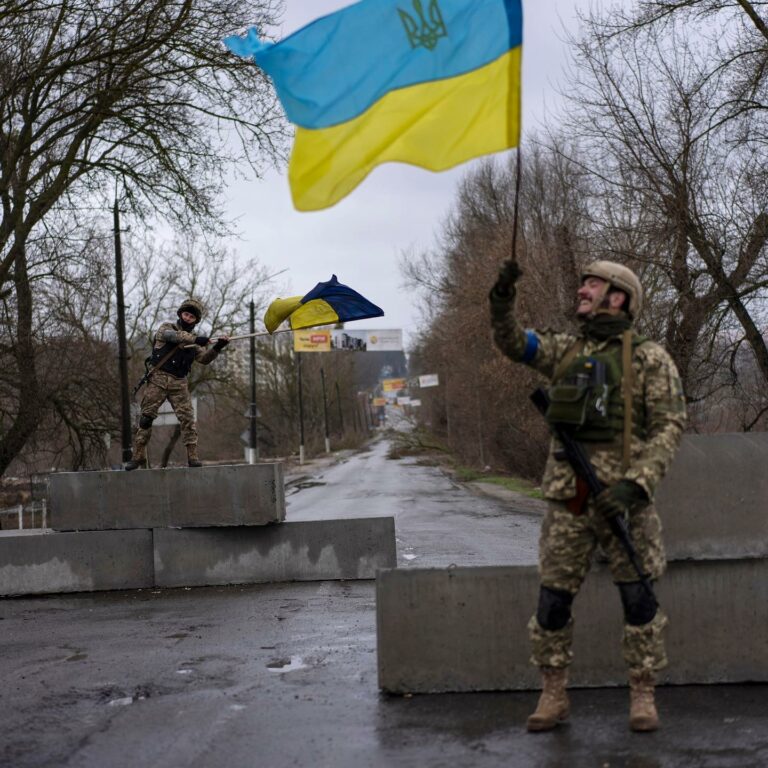
Irpin, Bucha, Hostomel and the entire Kyiv oblast were liberated from Russian troops. Along with the joy of the news of the liberation of Kyiv oblast comes terrible news about the scale of violence against locals. The enemy destroyed cities, leaving many deaths and traces of crimes against humanity behind.
April 1, Irpin, Polissia
Ukrainian soldiers are taking pictures with a flag in front of the destroyed bridge in Irpin.
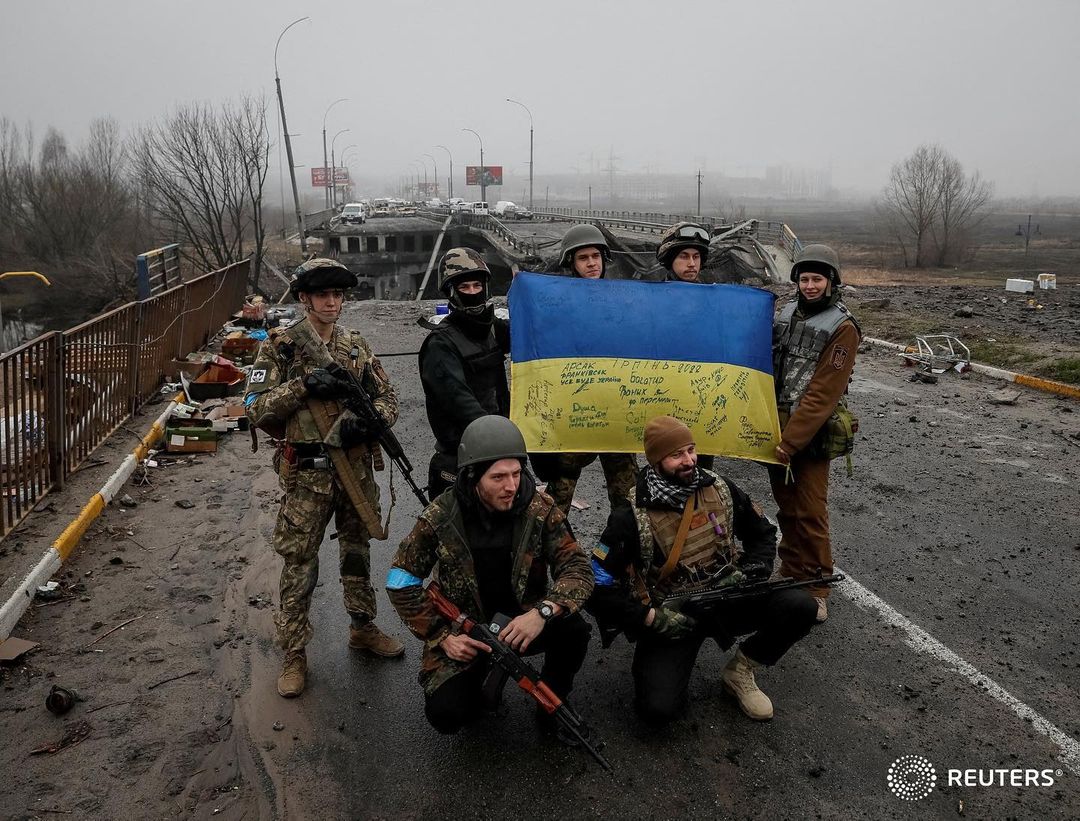
Photo: Gleb Garanich for Reuters
April 1, the outskirts of Kyiv
A local woman cries and hugs a journalist. Ukrainian troops are clearing the outskirts of Kyiv from the remnants of Russian troops.
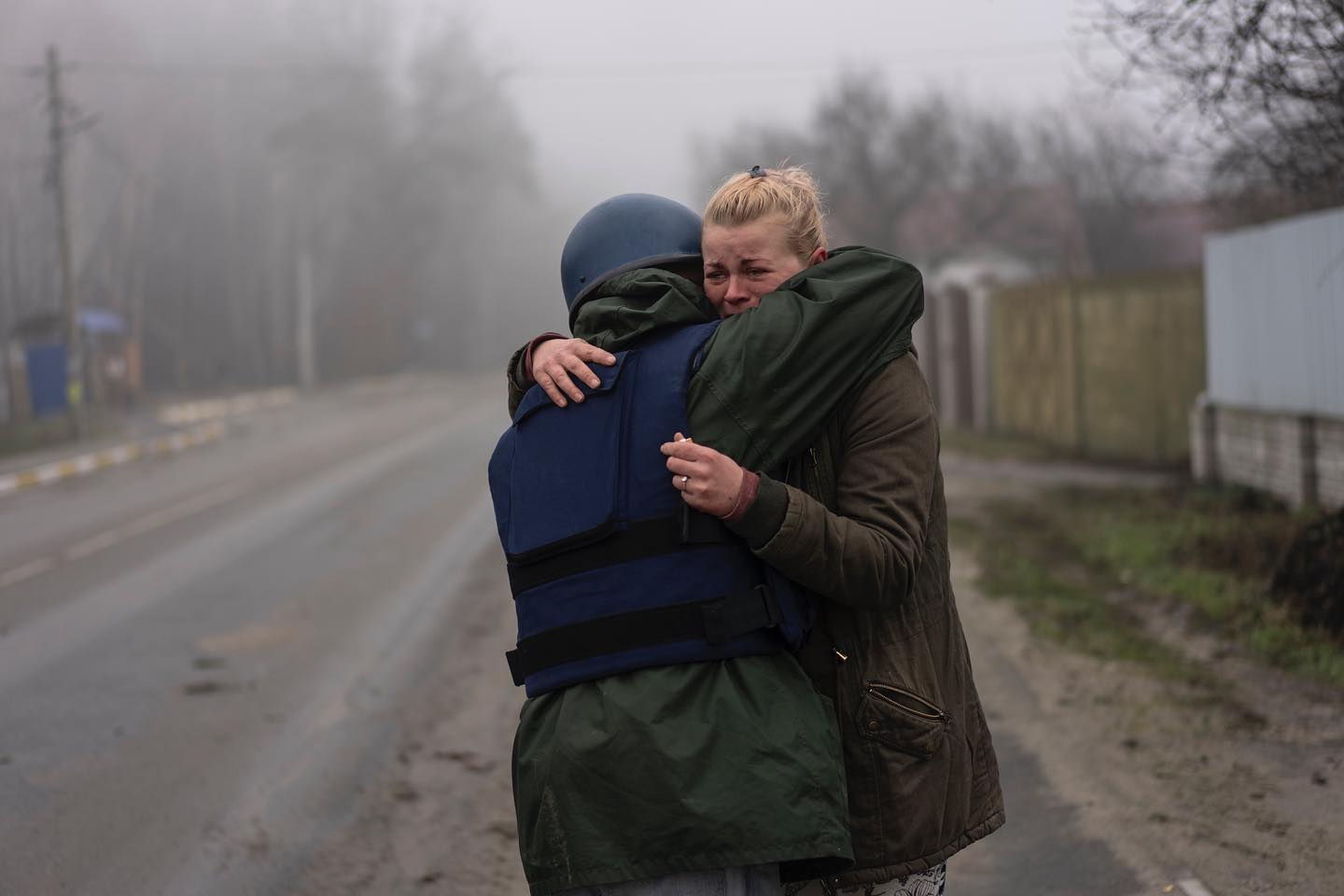
Photo: Rodrigo Abd for AP News
April 2, Hostomel, Polissia
The Ukrainian military in front of the An-225 “Mriya” cargo plane that was destroyed by the Russian occupiers; that plane was the largest in the world.
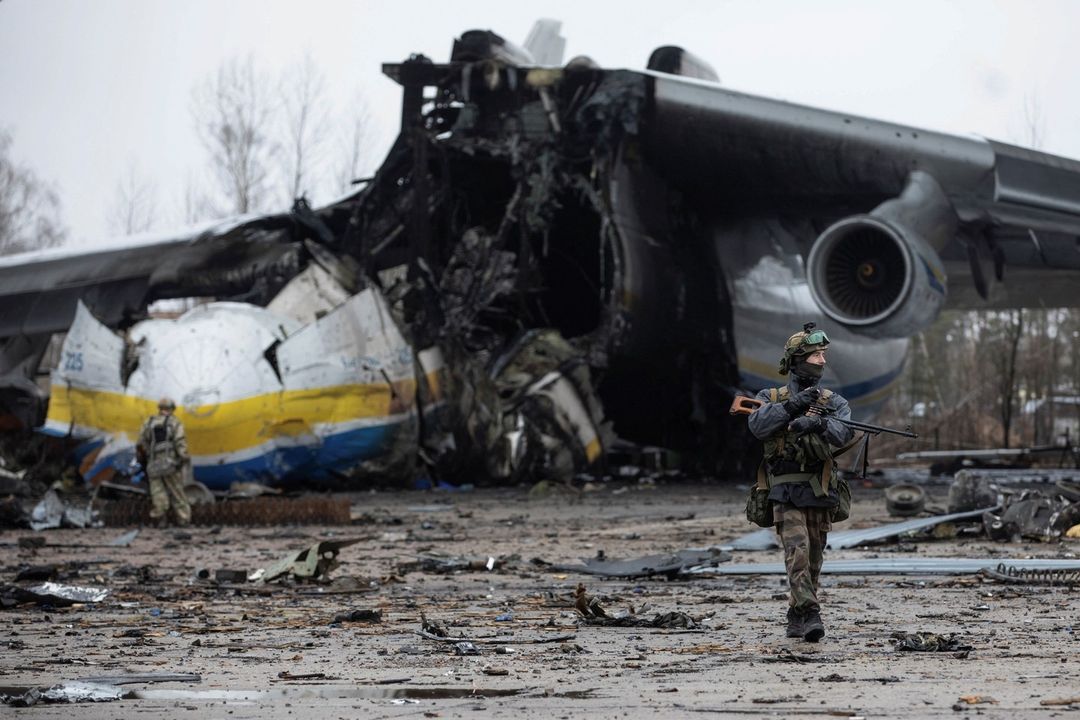
Photo: Telegraph
April 2, Kharkiv, Slobozhanshchyna
Portrait of the head of the Kharkiv regional administration Oleg Synegubov in his office after a missile strike.
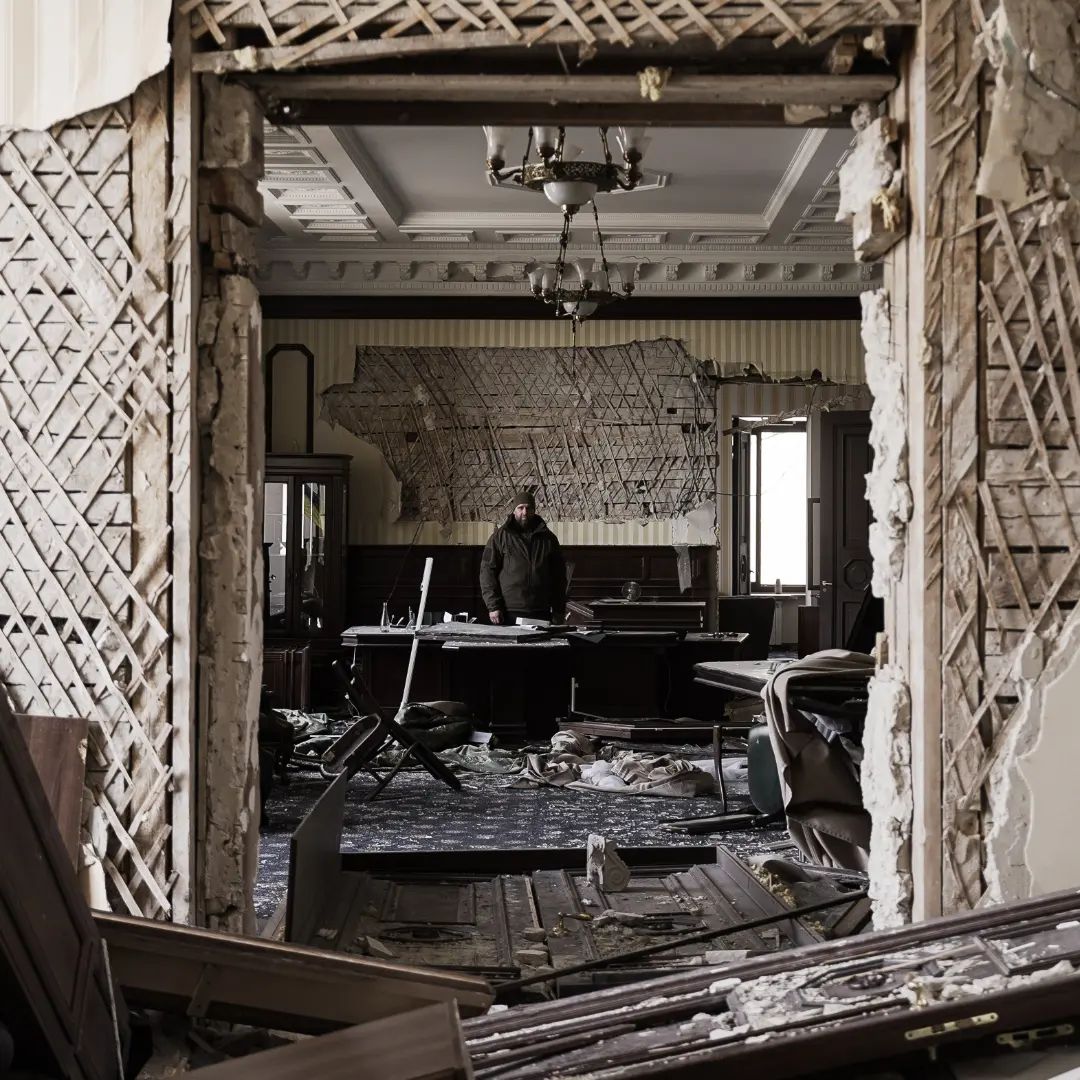
Photo: Pavel Dorogoy
April 2, Lviv, Halychyna
Sculptures were wrapped in the Lviv Garrison Church to protect them from possible damage.
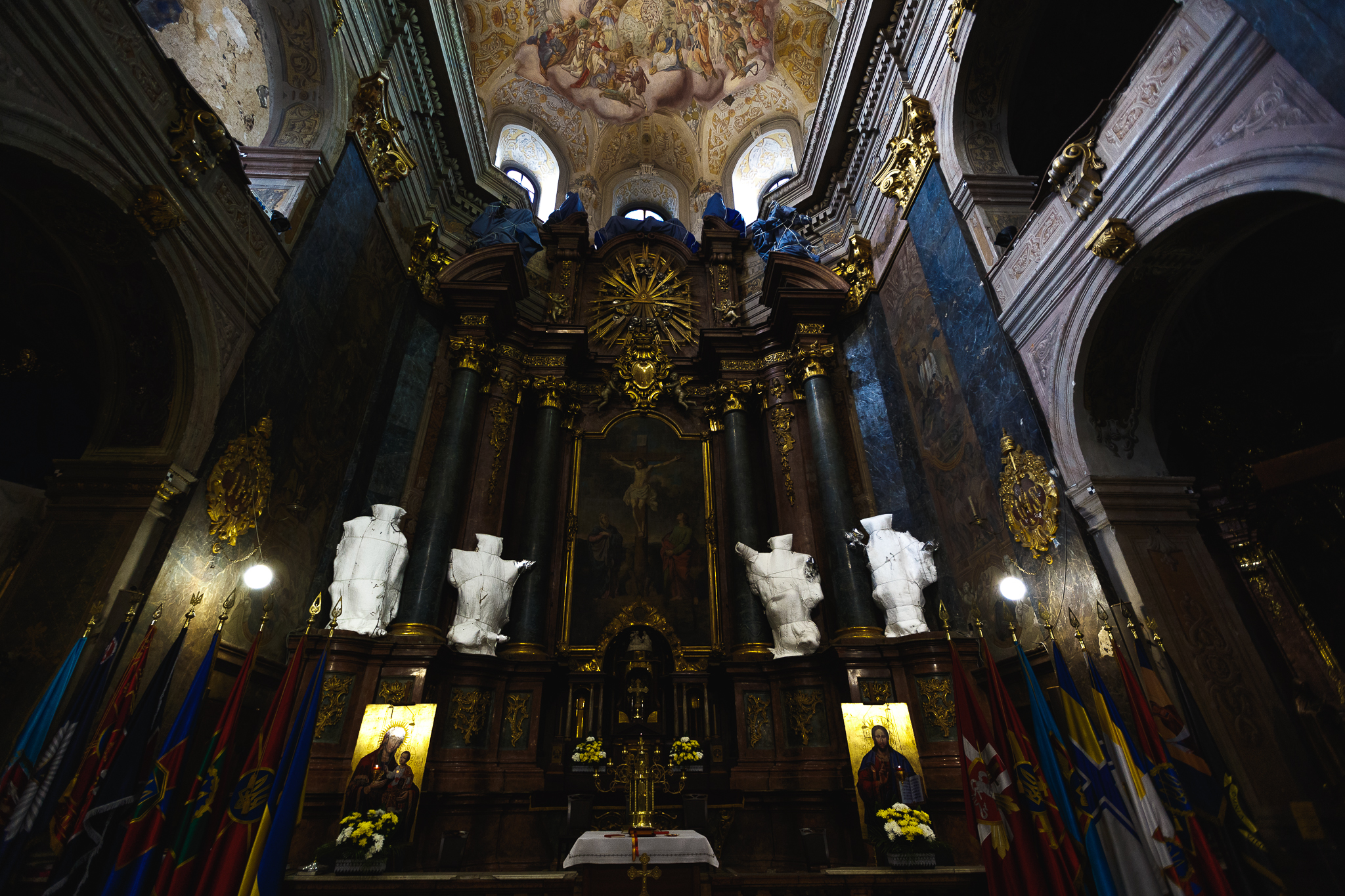
Photo: Yurii Stefanyak
April 2, Kyiv
Iryna and Oleg are holding their son, who was born on March 25. Iryna stayed in Kyiv to support her husband.
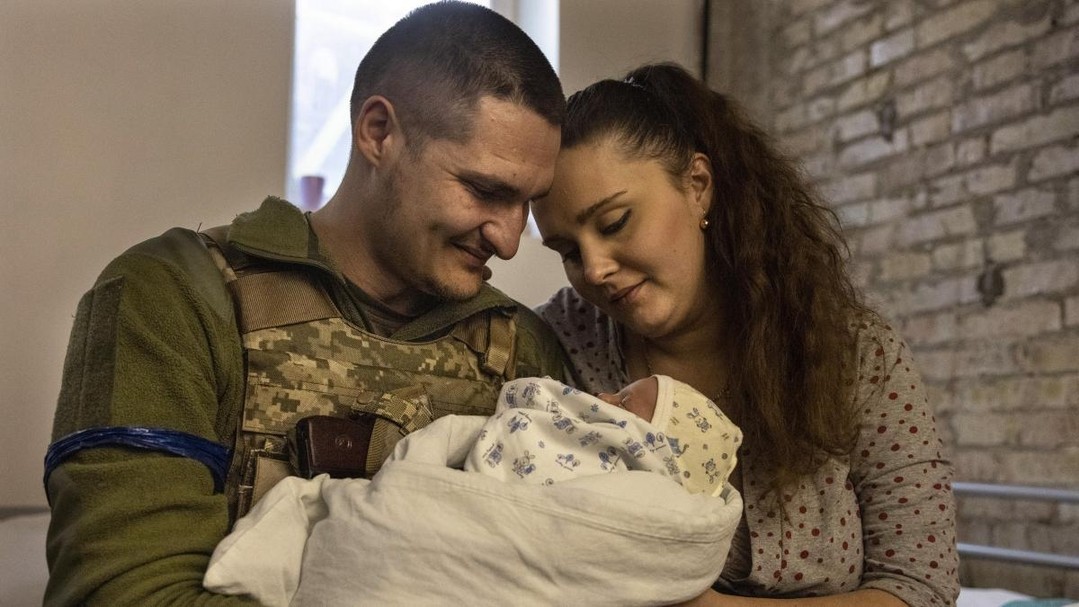
Photo: Paula Bronstein for The Times
April 1, Kharkiv, Slobozhanshchyna
Nurses of a maternity hospital that moved underground due to constant bombing.
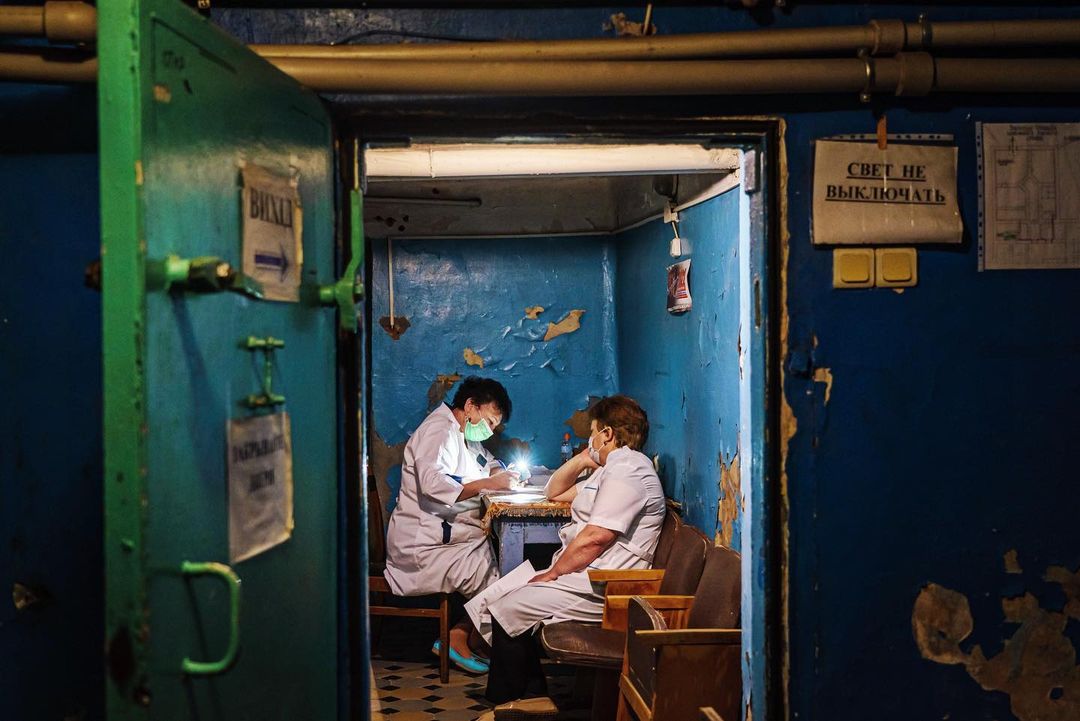
Photo: Marcus Yam
April 2, Kharkiv, Slobozhanshchyna
Locals living in the Kharkiv subway.
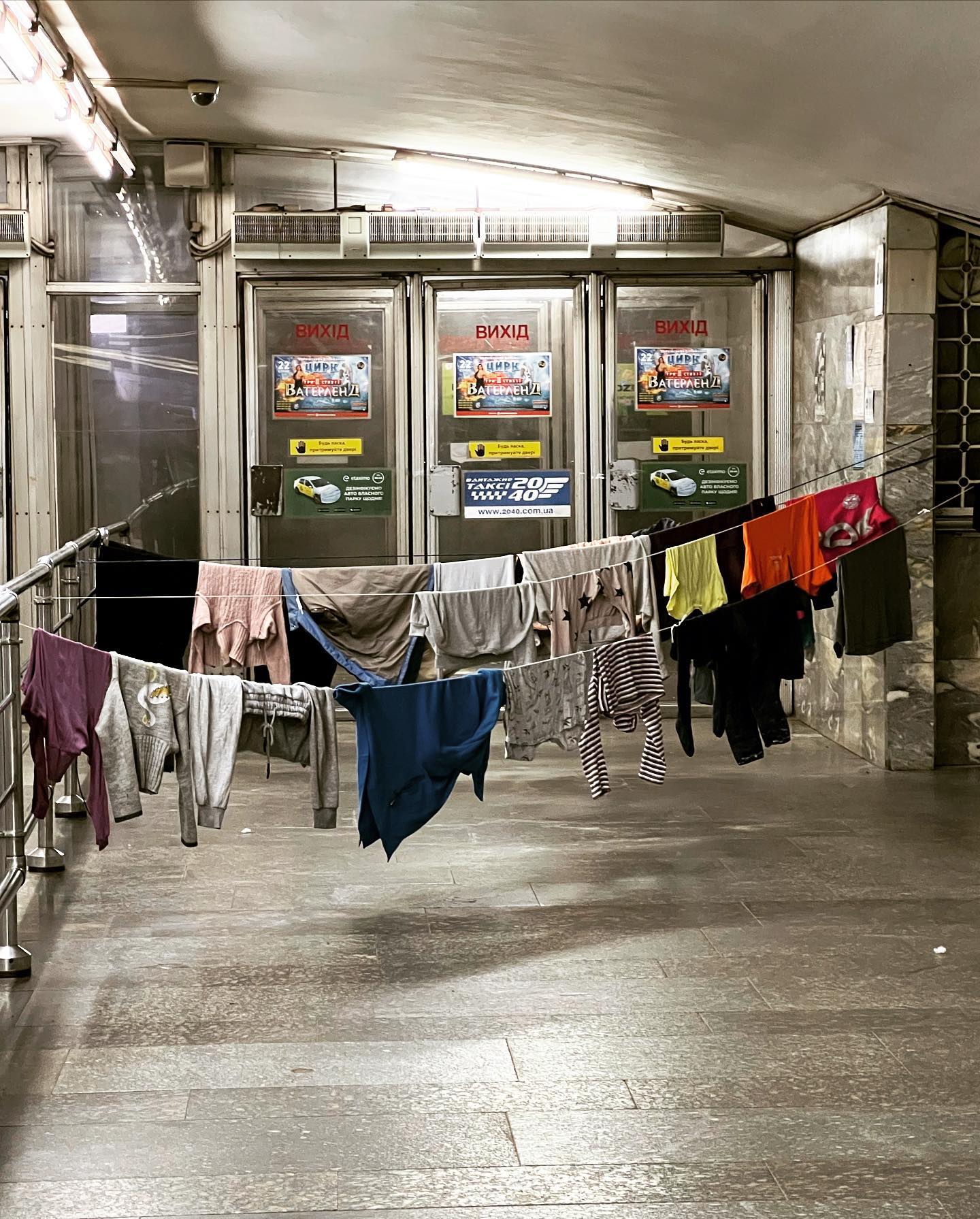
Photo: Kirill Gonchar
April 1, Kyiv
In complete silence, the man looks at the Saint Sophia cathedral. 1 minute after the air alert warning.
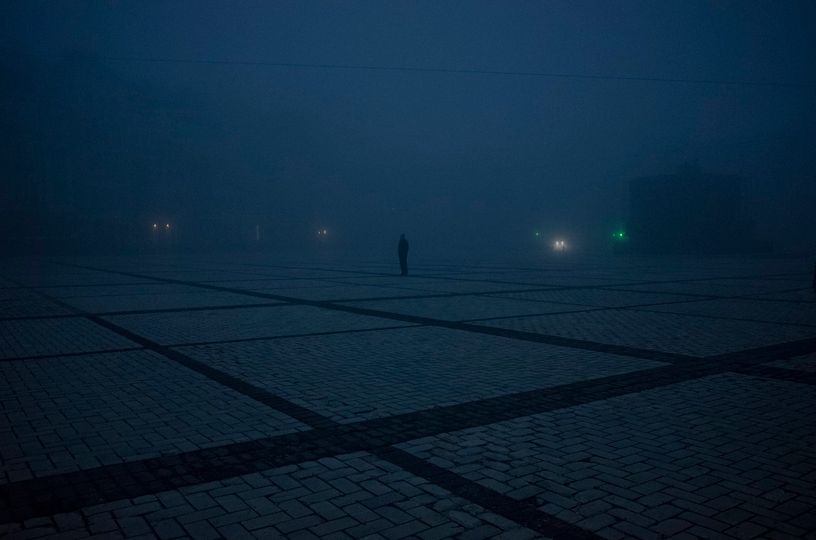
Photo: Zhenia Perutska
April 1, the outskirts of Kyiv
Zinaida, 65, is standing next to a bomb crater behind her house.
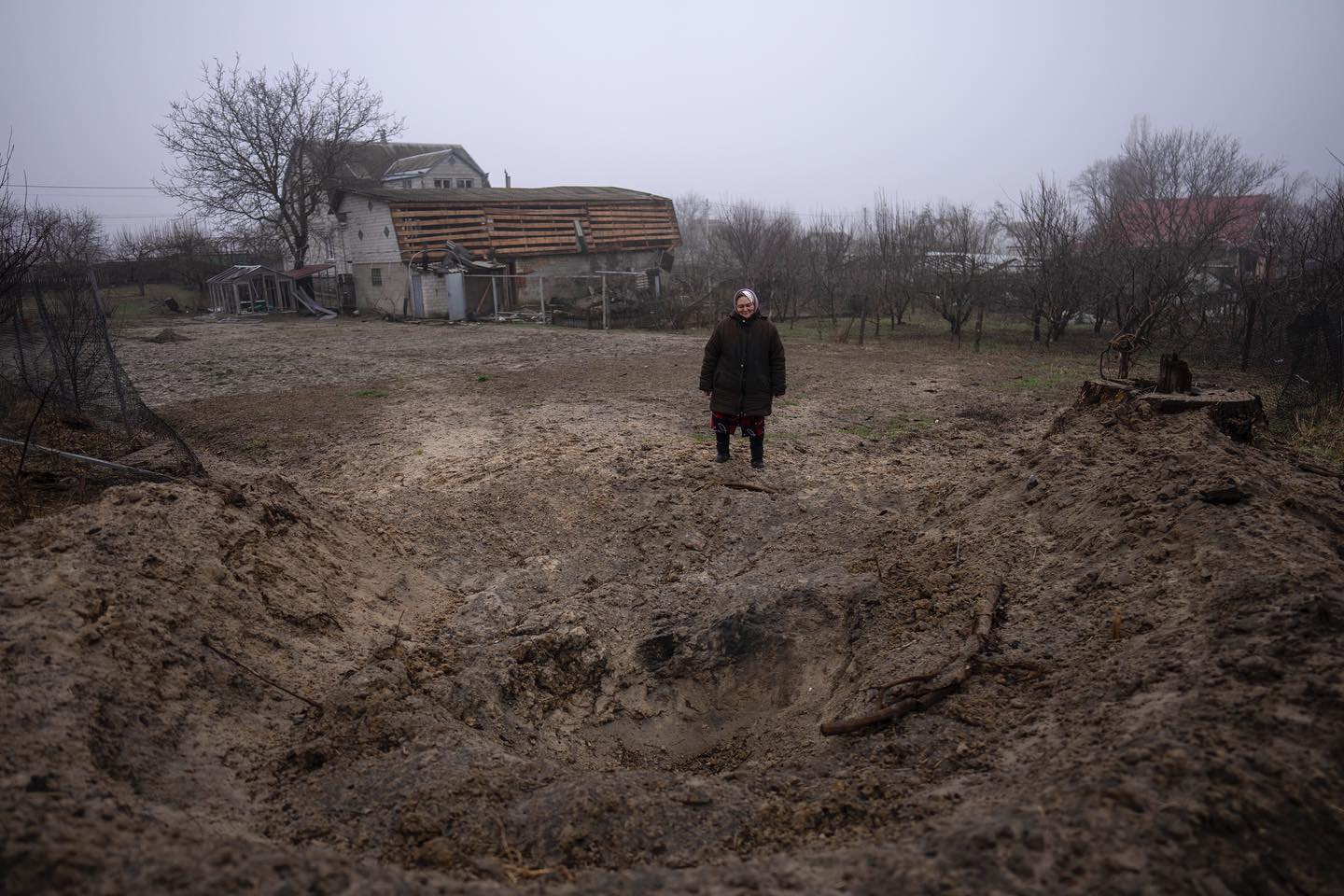
Photo: Rodrigo Abd for AP News
April 3–4th
Horrifying photos of the dead residents of the Kyiv region, whose bodies were left on the streets or hastily buried, continue to shock Ukrainians and the rest of the world. The “rescue operation” of the Russian troops is quite literally a genocide of the Ukrainian people. For the first time in six weeks, President Volodymyr Zelenskyy left Kyiv to see the consequences of the Russian occupation in liberated Bucha.
04.04 Bucha, Polissia
A woman kisses a man while cooking on an open fire near a residential building where there has been no electricity, water, or gas since the beginning of the Russian invasion.
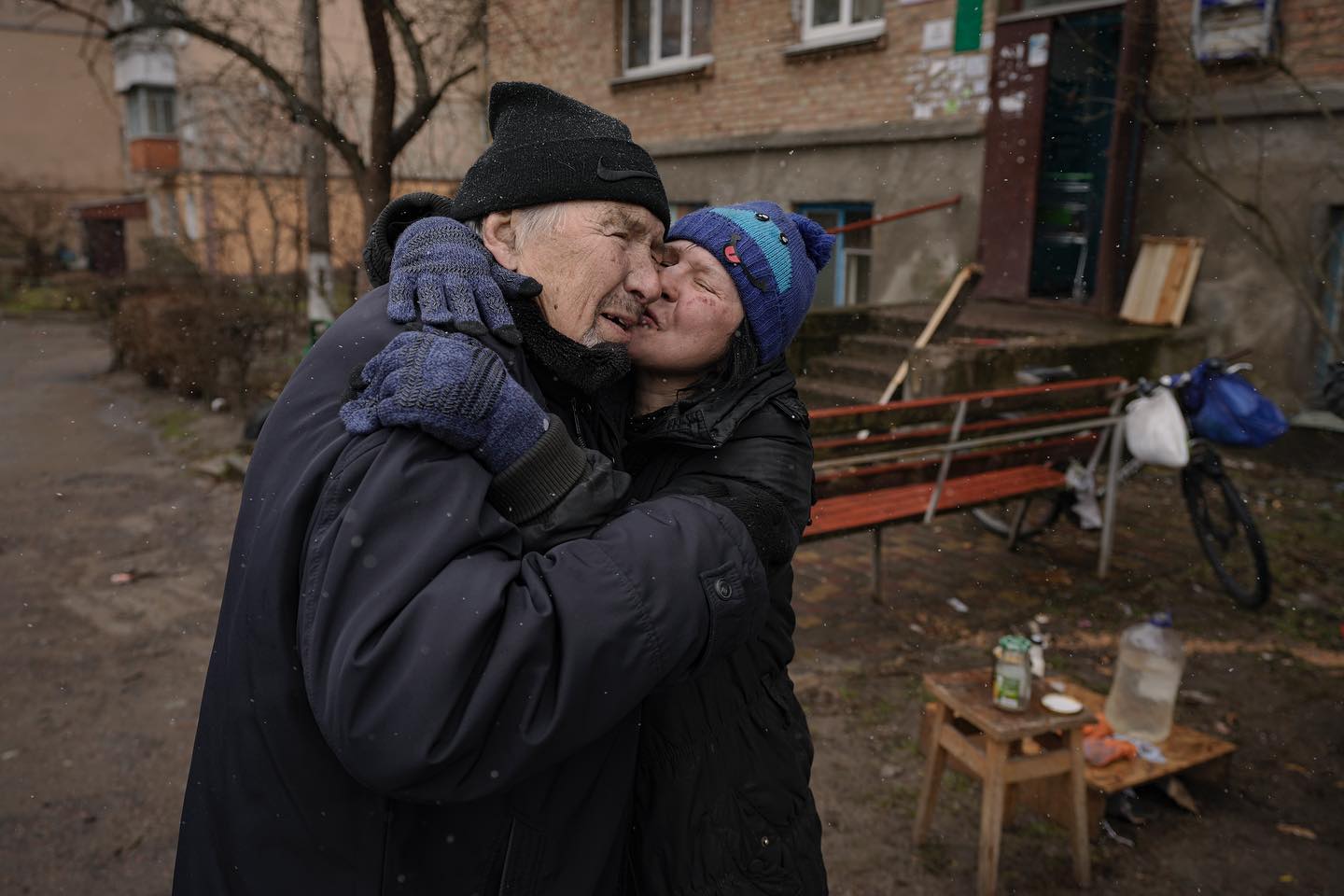
Photo: Vadim Ghirda
04.04 Bucha, Polissia
During his visit to Bucha, Volodymyr Zelenskyy said that the world would recognize the Russian military’s war crimes as genocide.
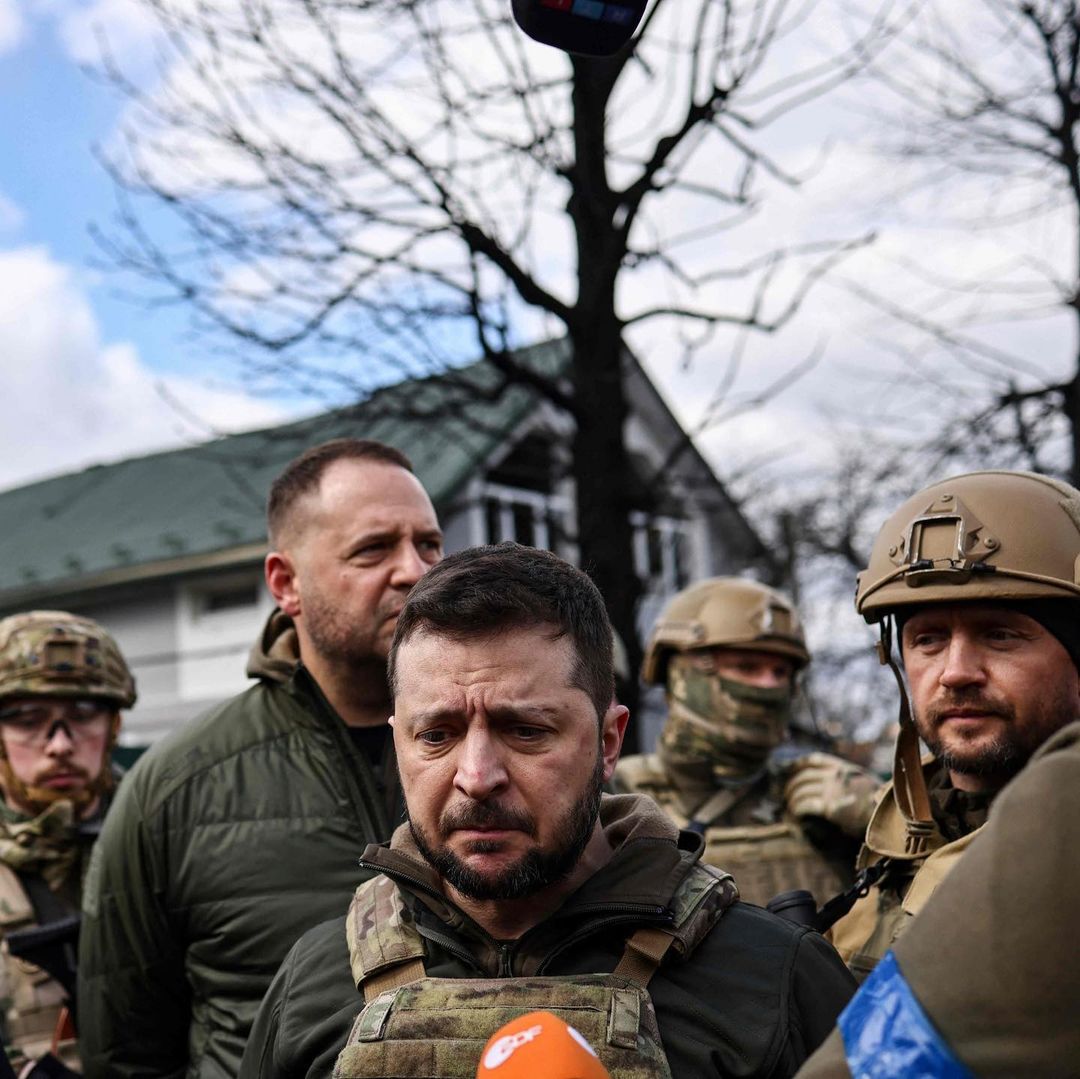
Photo: Ronaldo Schemidt for AFP
03.04 Bucha, Polissia
Local residents buried their dead relatives and neighbors in the backyards, some in the forest.
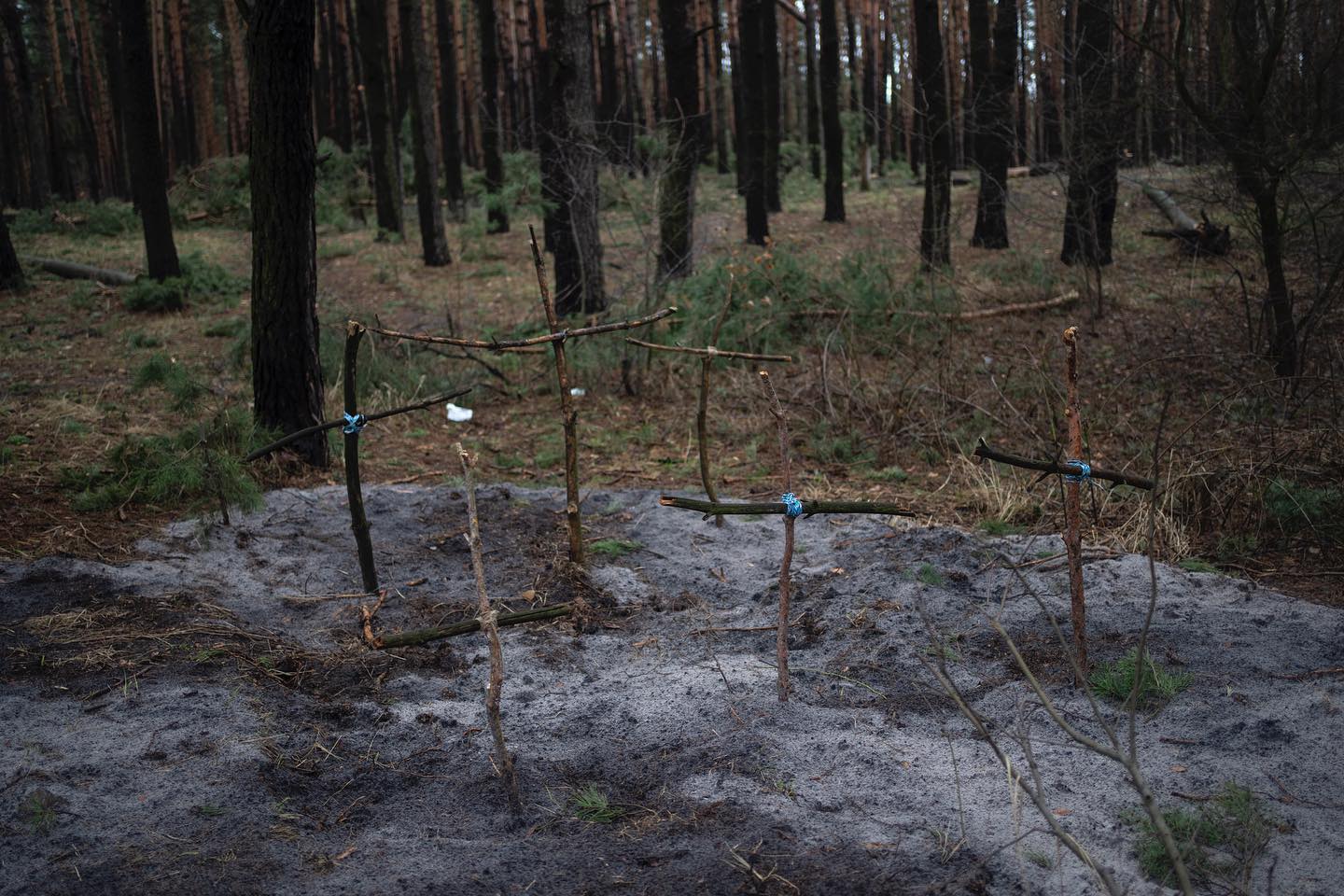
Photo: Rodrigo Abd
04.04 Bucha, Polissia
A resident of Bucha who survived the Russian occupation.
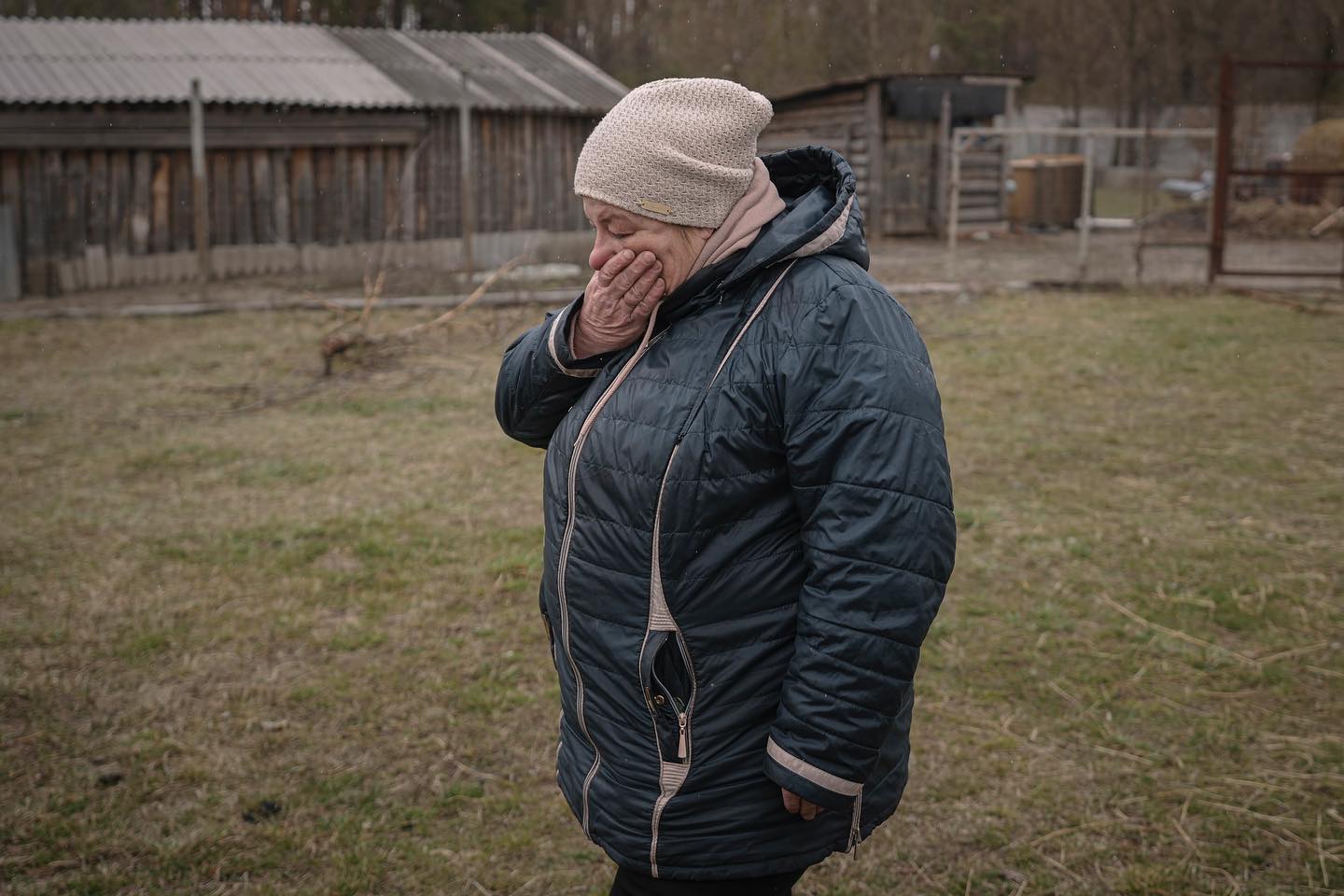
Photo: Vadim Ghirda
04.04 the outskirts of Kyiv
Before leaving the Kyiv region, the Russian military mined roads, kindergartens, schools, cars, and the bodies of the dead.
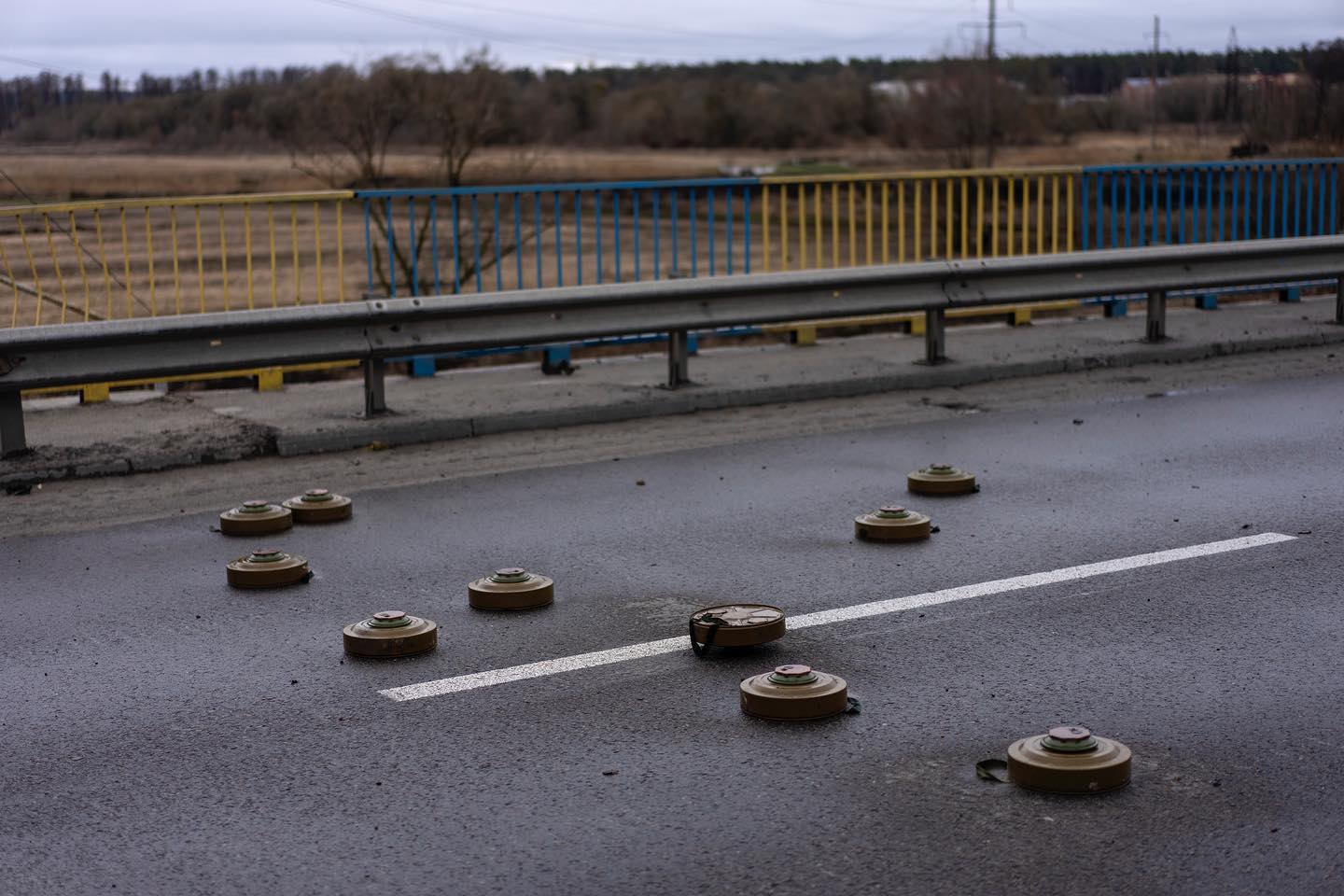
Photo: Rodrigo Abd
03.04 Bucha, Polissia
The emotional reaction of a local resident who has been living under the Russian occupation for the past month.
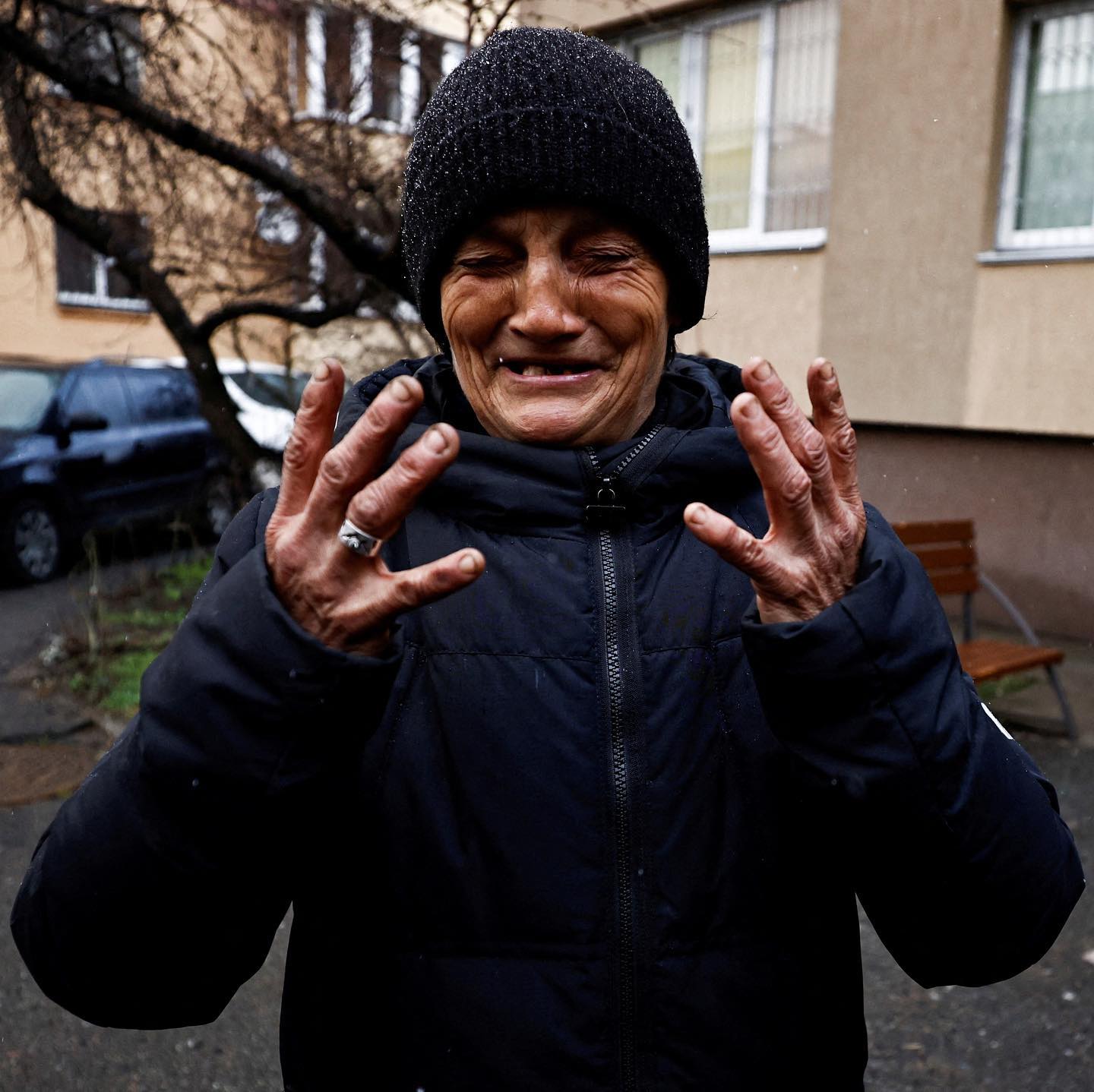
Photo: Telegraph
04.04 Bucha, Polissia
The man shows the entrance to the basement, where the bodies of civilians killed by the Russian military are hidden.
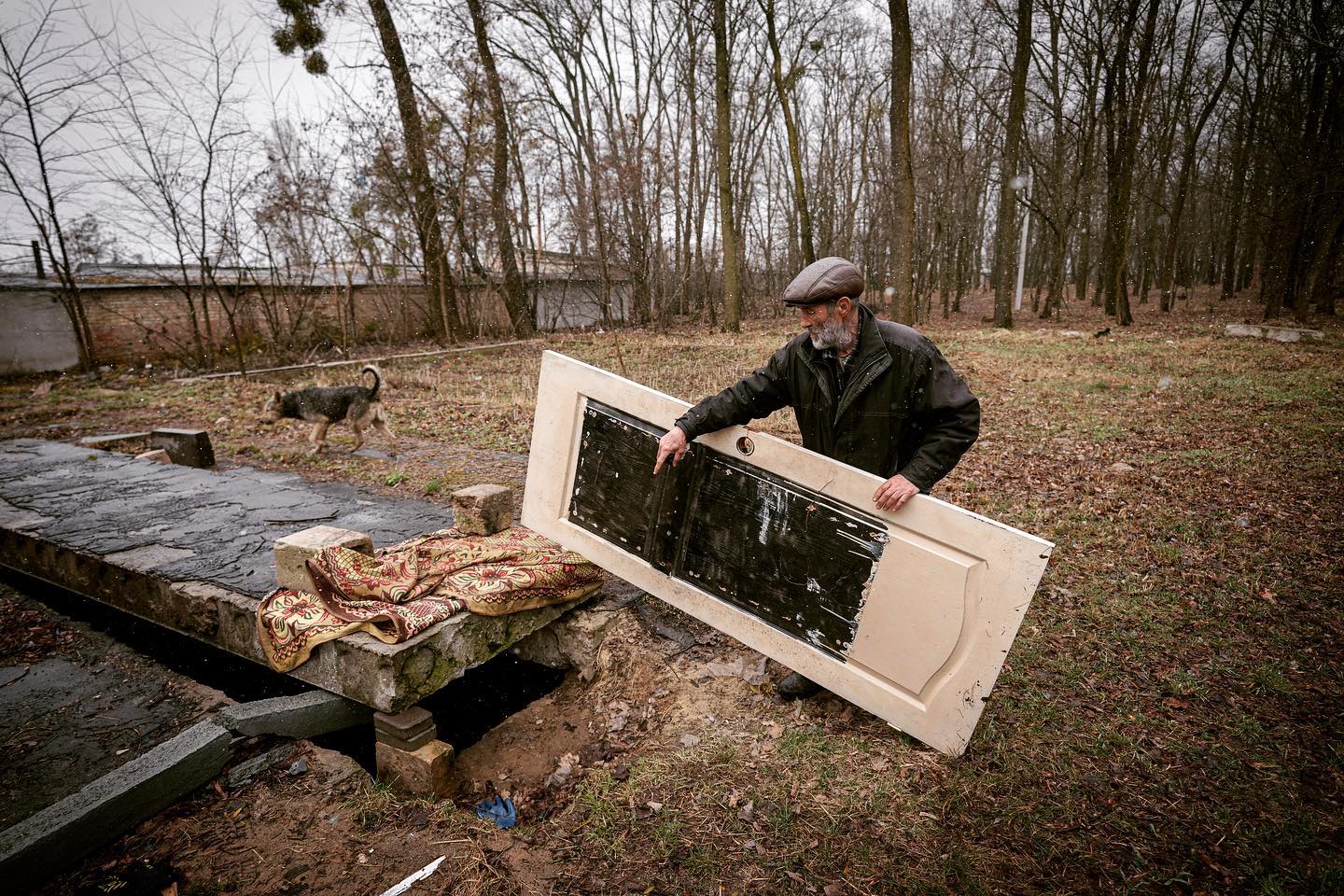
Photo: Vadim Ghirda
04.04 Bucha, Polissia
According to Ukraine’s Ministry of Internal Affairs, at least 400 people were killed during the Russian occupation of Bucha.
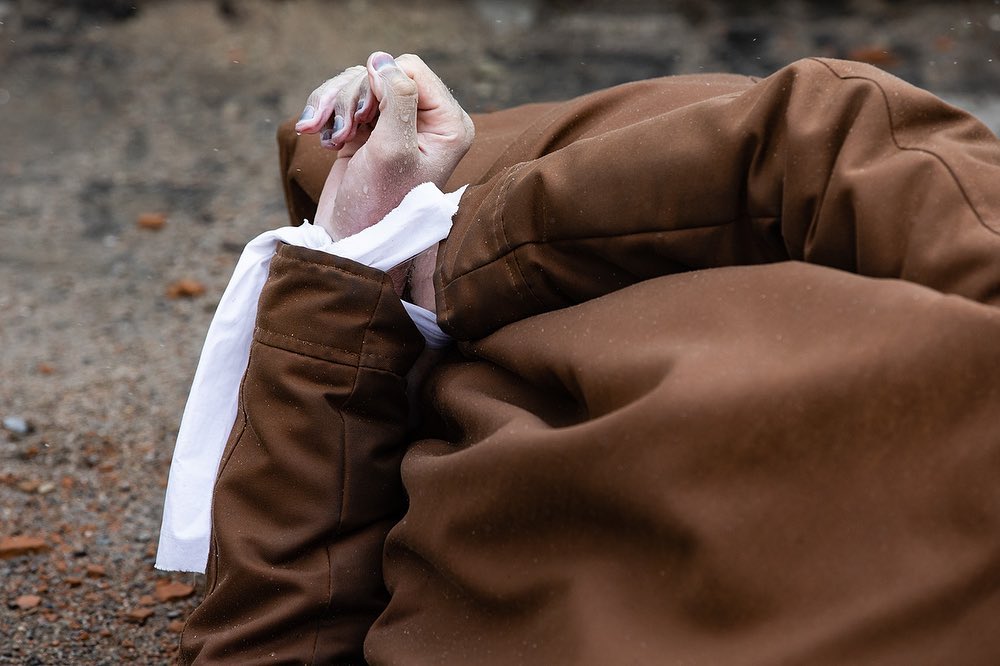
Photo: Mikhail Palinchak
03.04 the outskirts of Kyiv
Dead bodies lie on the side of the highway 20 km away from Kyiv. The Russian military shot at people who tried to evacuate in the western direction.
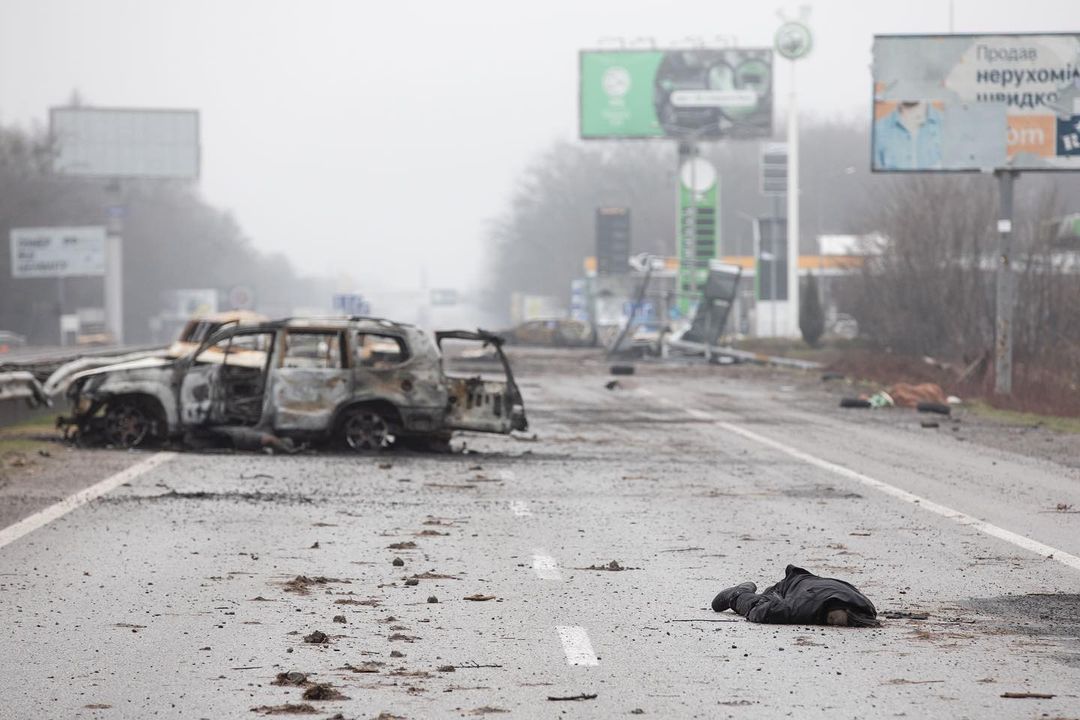
Photo: Mikhail Palinchak
03.04 Bucha, Polissia
Ukrainian servicemen are waving a state flag at a checkpoint in the liberated Kyiv region.
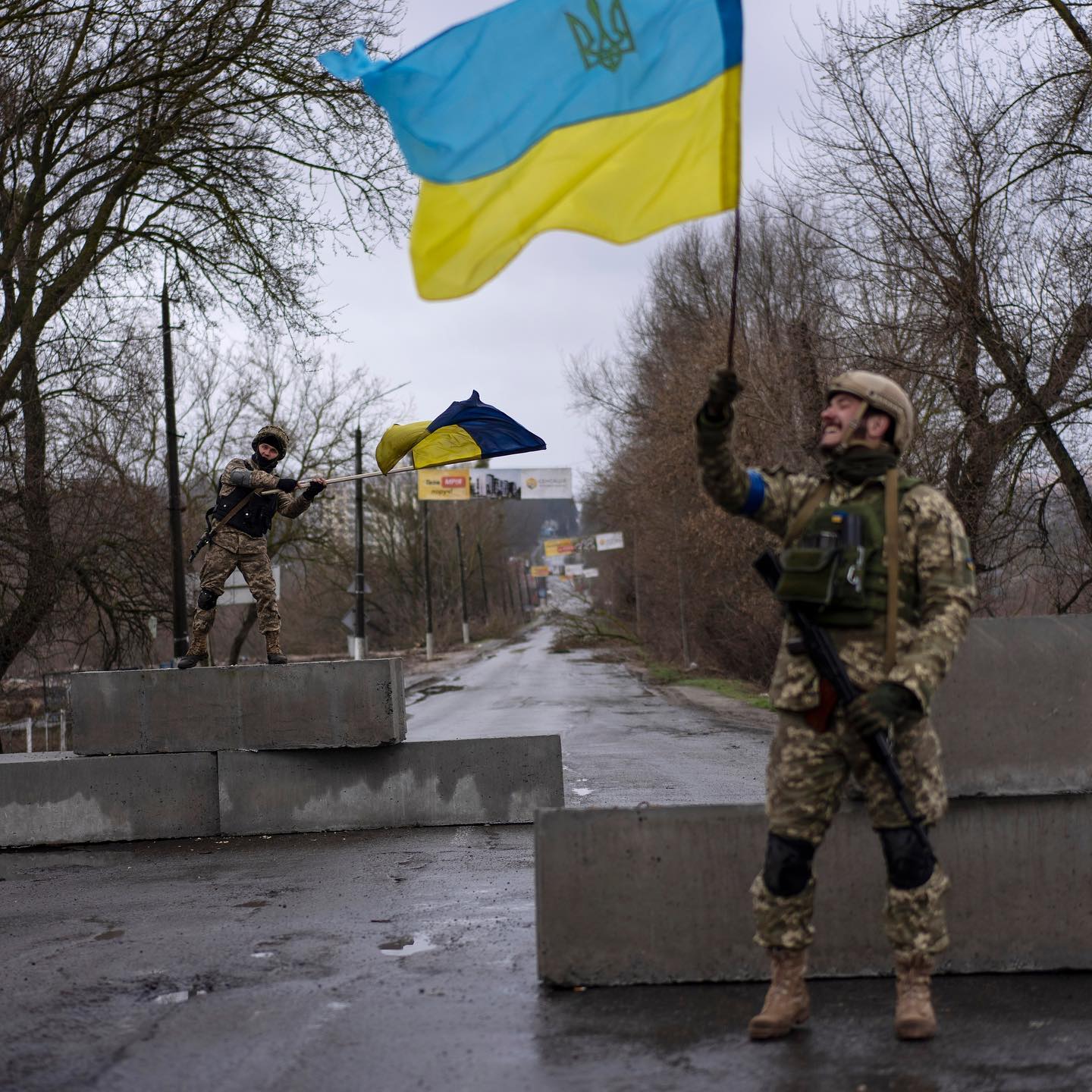
Photo: Telegraph
April 5-6
Residents of freed Ukrainian towns and villages receive humanitarian aid after their liberation, and law enforcement agents investigate war crimes. The world continues to come to terms with the scale of the tragedy in Bucha, and the public continues to put pressure on European politicians to strengthen sanctions.
6.04 Berlin
Thousands of people participated in the “Enough promises, it’s time to act!” rally by lying on the ground in front of the Bundestag.
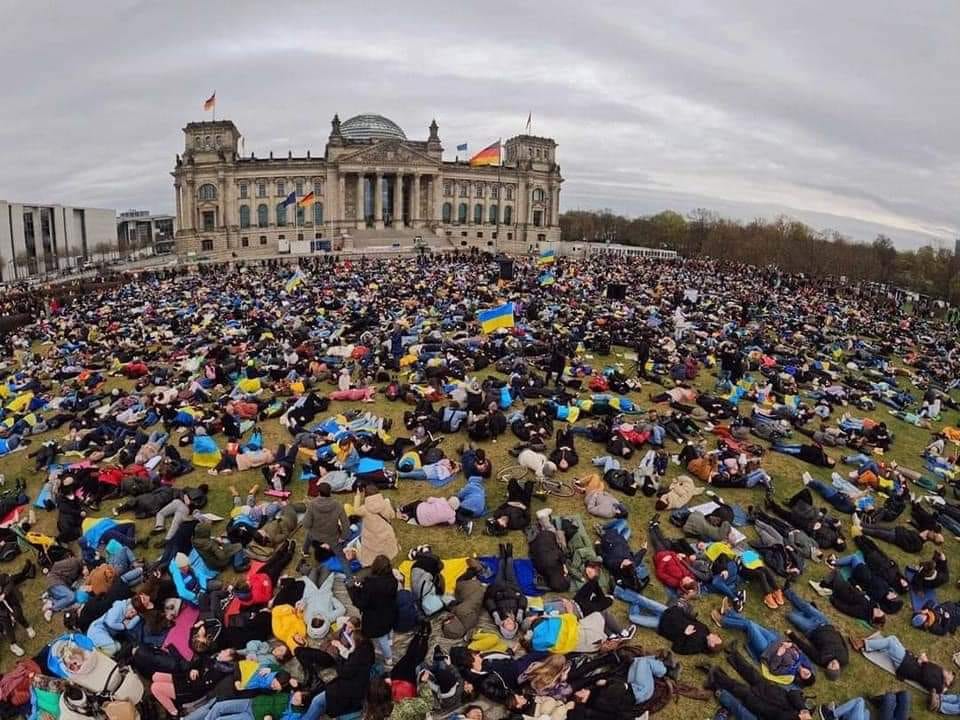
Photo: Sophie Tychonenko for OnFire
5.04 Bucha, Polissia
A six-year-old boy brings canned food, juice and flowers to the grave of his mother, who died of starvation and stress during the Russian occupation.
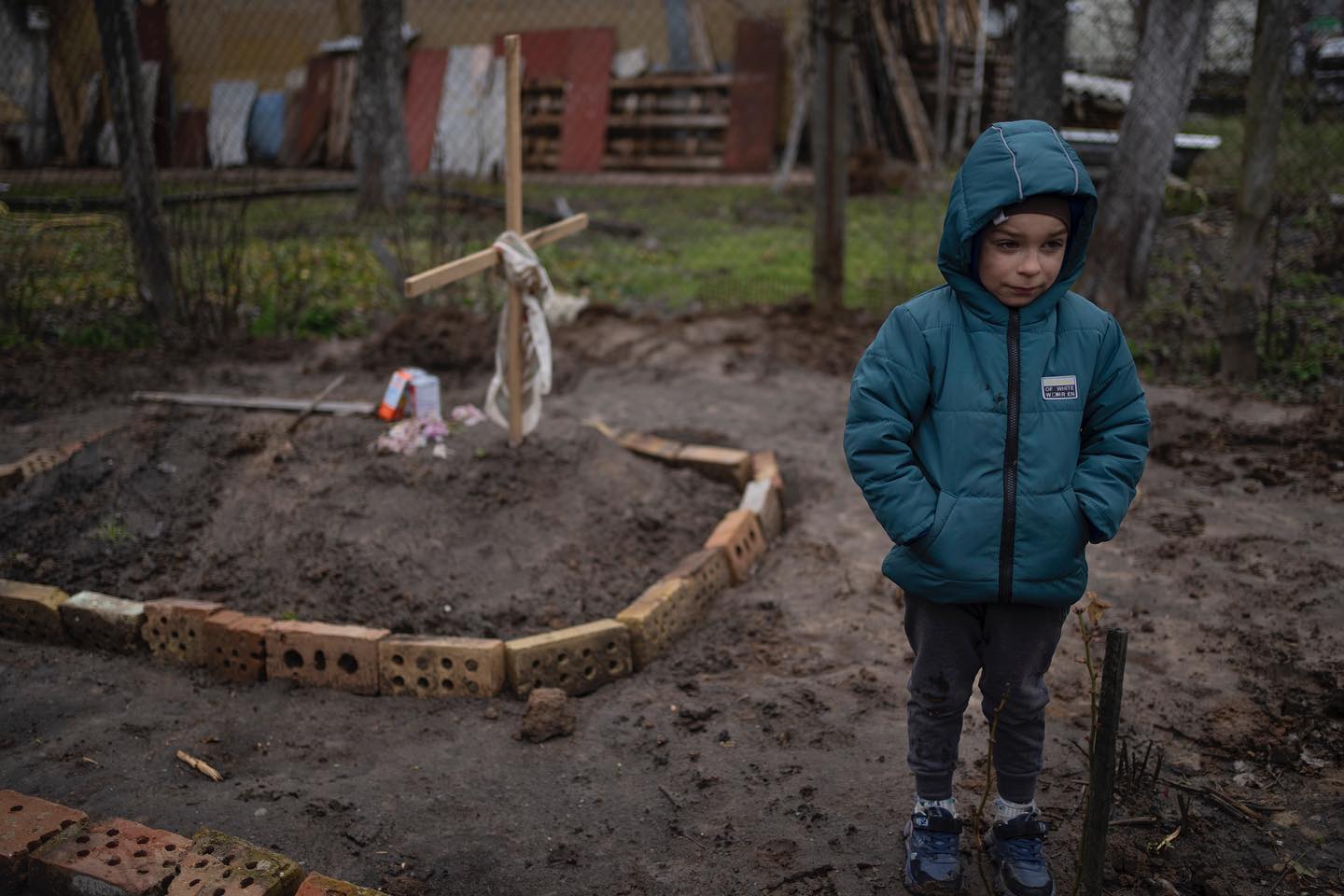
Photo: Rodrigo Abd for AP Photo
6.04 Kharkiv, Slobozhanshchyna
Territorial Defense Military in front of a car approaching the checkpoint after curfew.
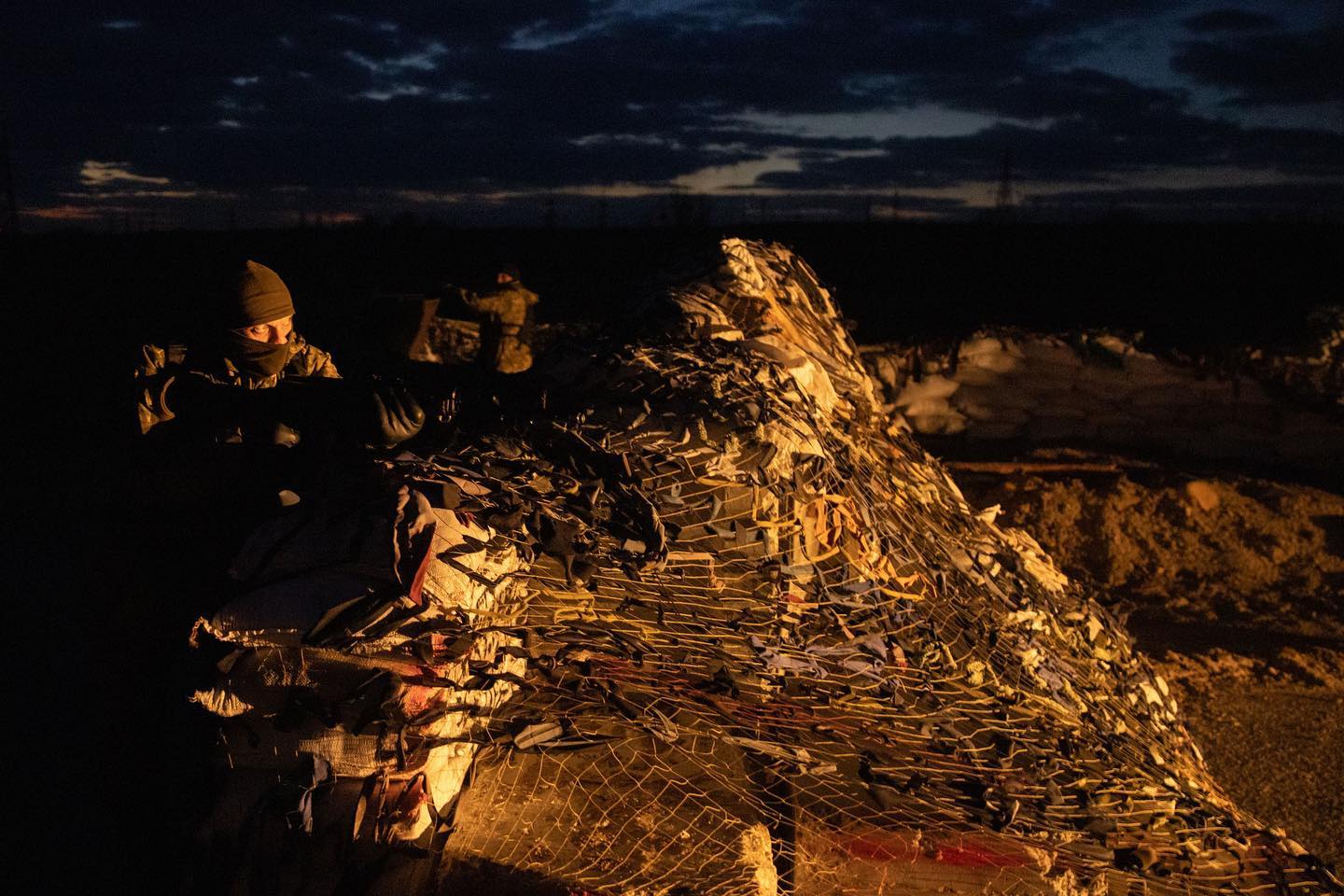
Photo: Chris McGrath
6.04 Bucha, Polissia
A local resident called Larysa cries tears of relief holding bread brought by volunteers along with other humanitarian aid.
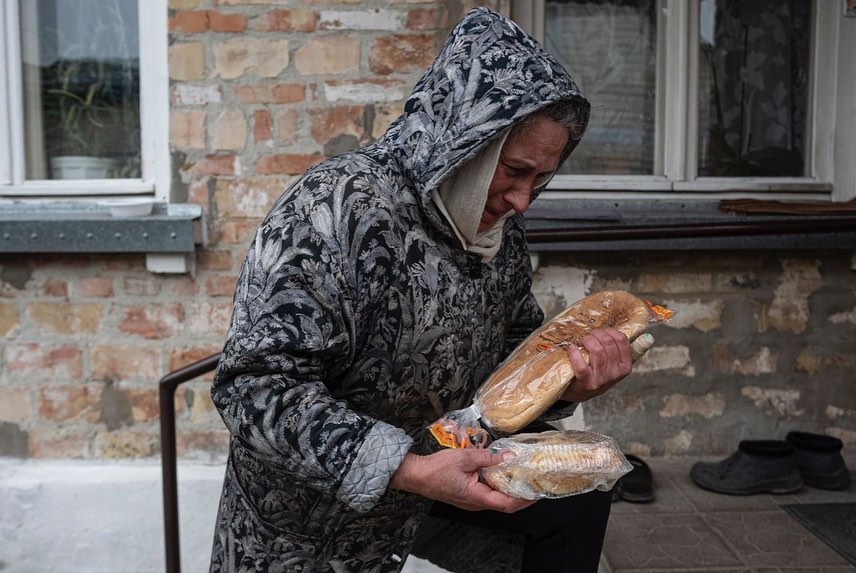
Photo: Alexey Furman for Getty Images
6.04 Kharkiv, Slobozhanshchyna
Four animals were rescued from the eco-park, which has come under shelling: two lion cubs, a jaguar, and a panther.
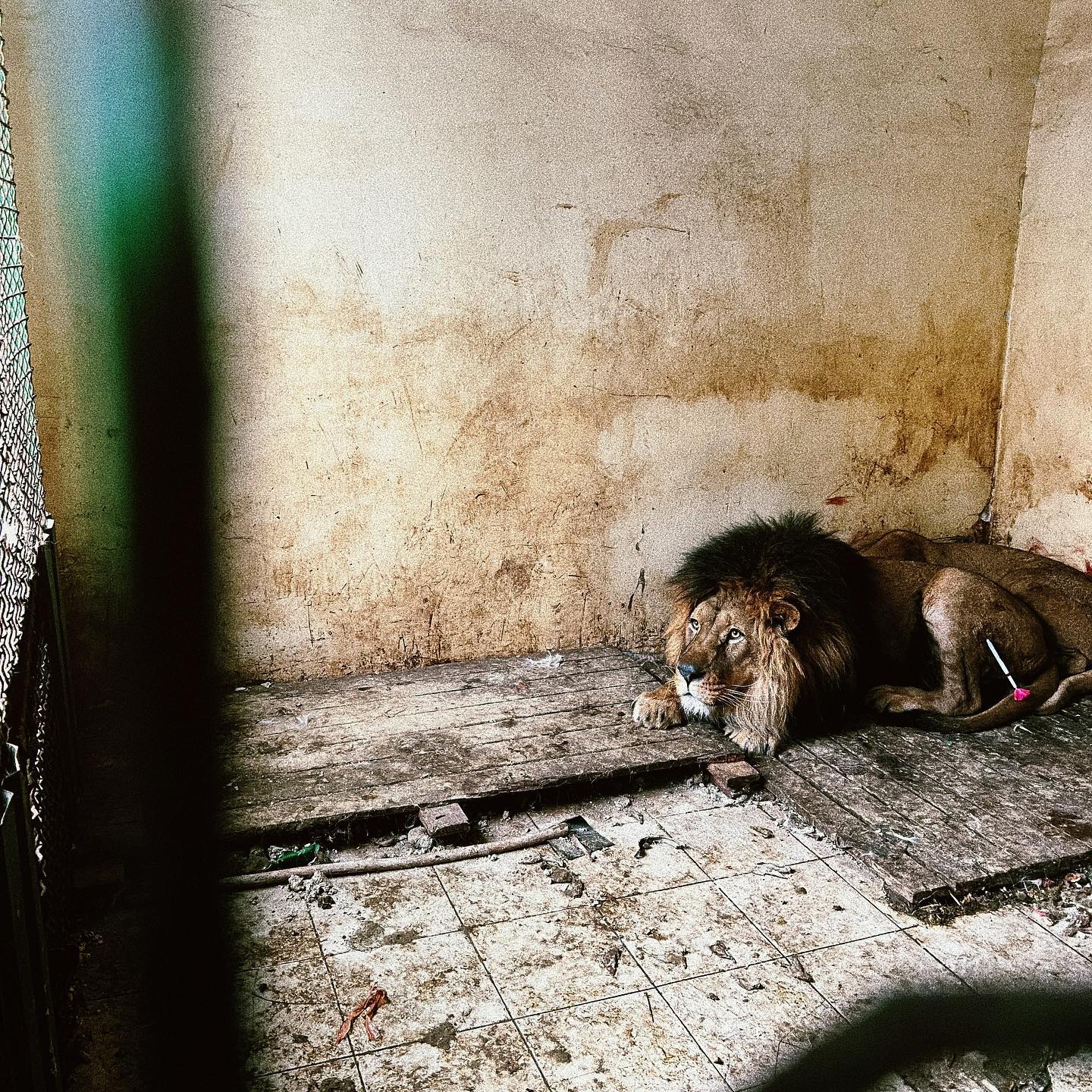
Photo: Kirill Gonchar
06.04 Borodianka, Polissia
Men ride bicycles near a ruined apartment building in liberated Borodianka.
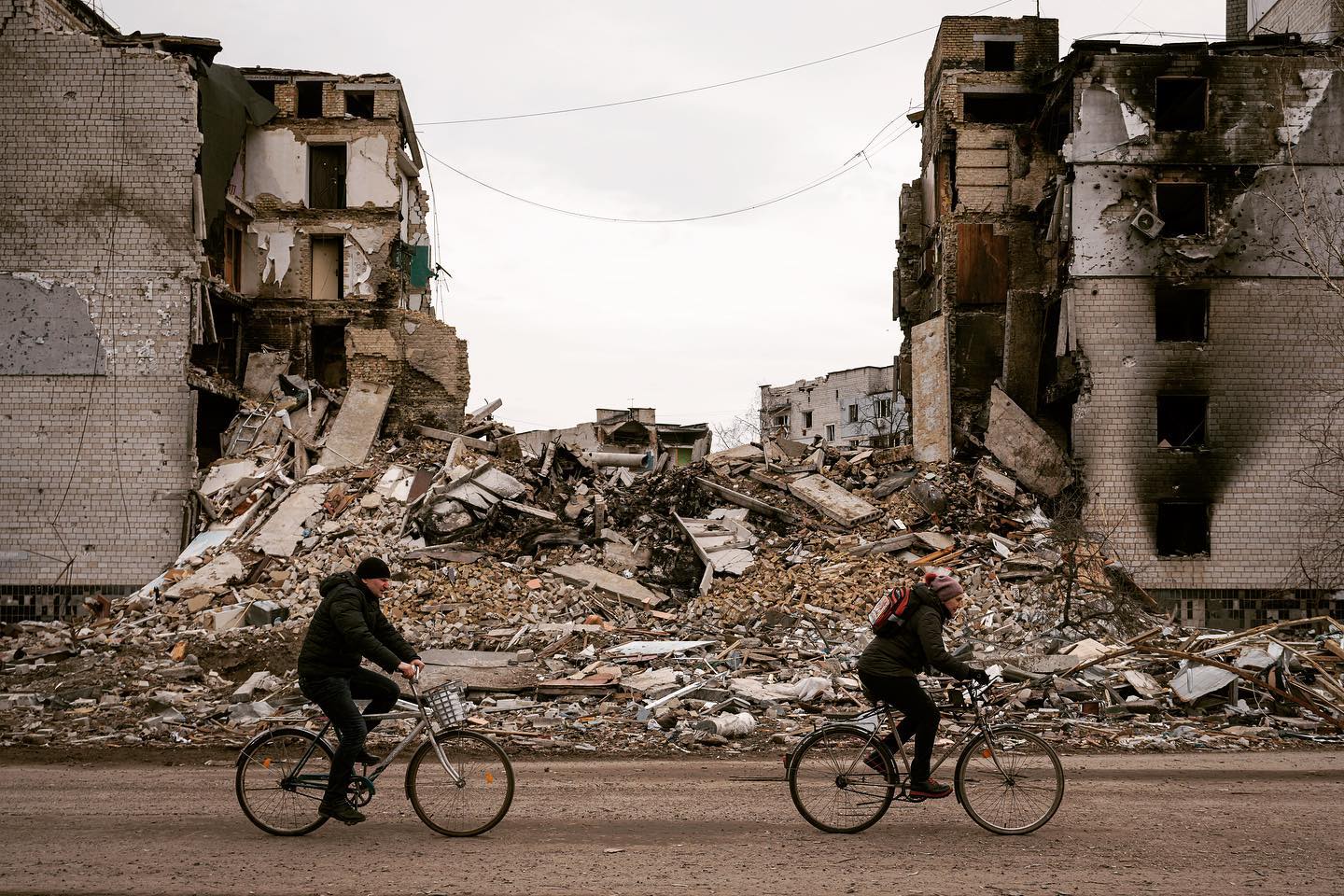
Photo: Vadim Ghirda for AP Photo
06.04 Rome
Pope Francis holds a Ukrainian flag that was sent to him from Bucha, where Russian forces committed war crimes.
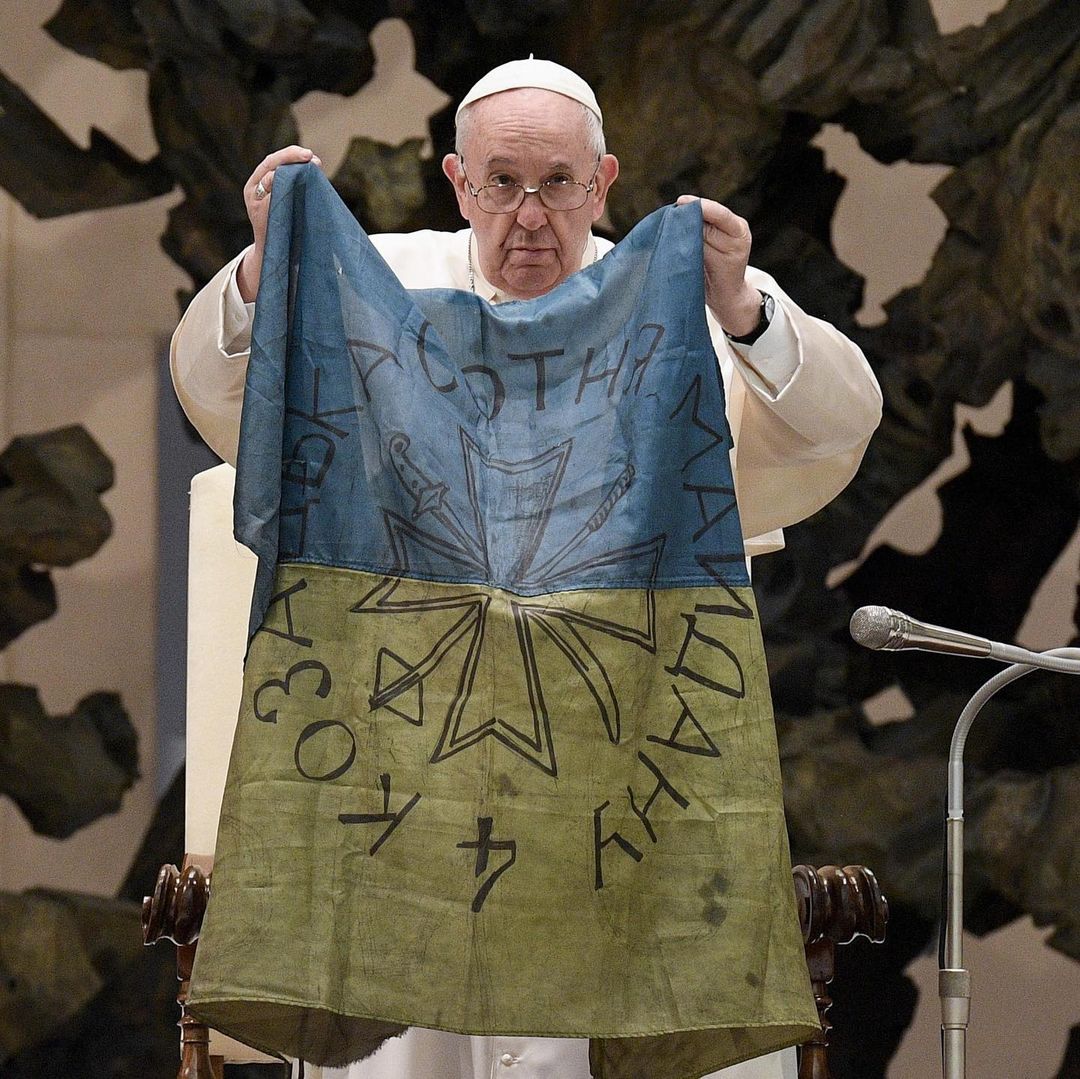
Photo: Remo Casilliâ for REUTERS
5.04 Borodianka, Polissia
A Ukrainian traditional motanka doll lies among the ruins of a house.
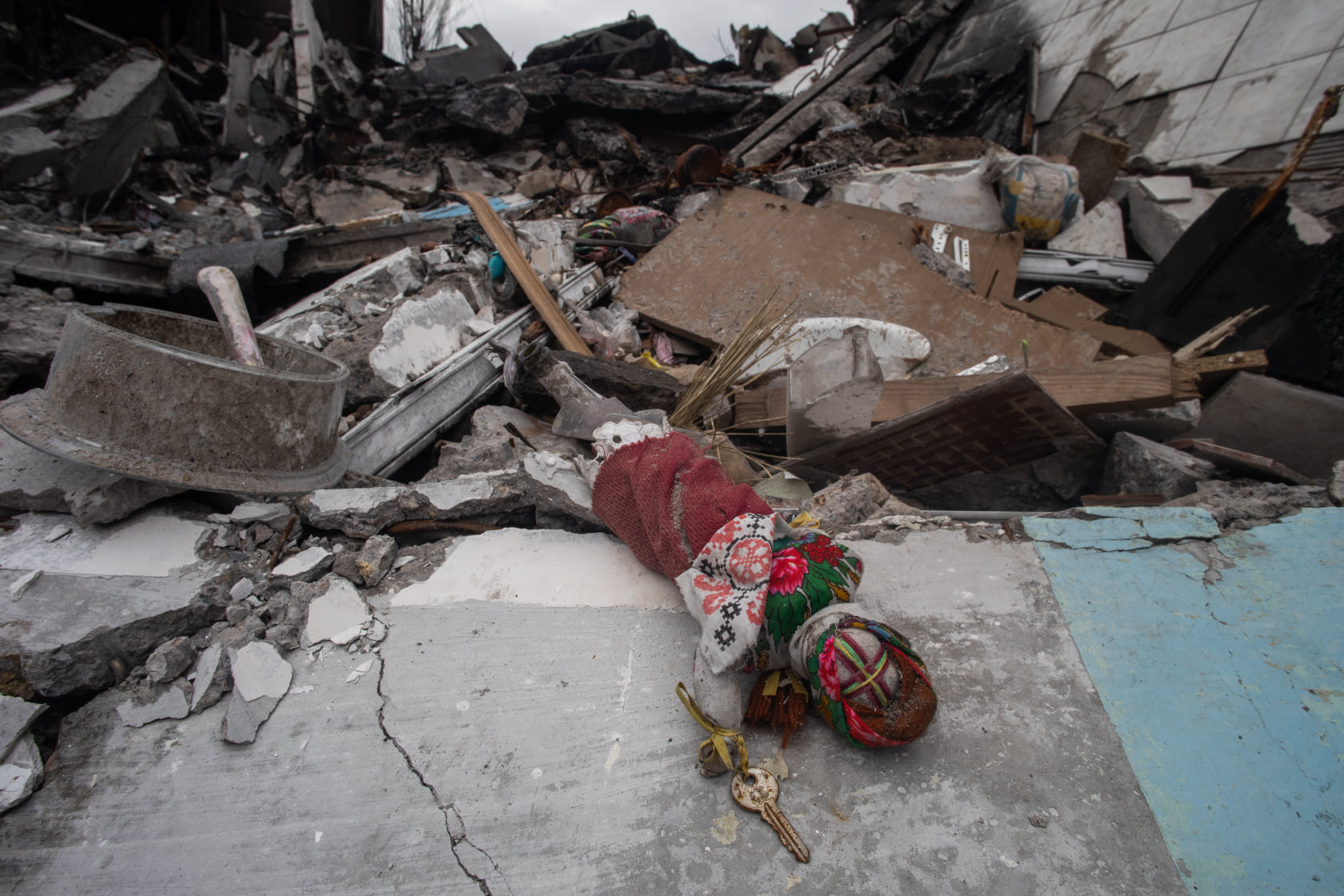
Photo: Oleksandr Khomenko
6.04 Bucha, Polissia
Dozens of bodies were transported to the cemetery where law enforcement officers are recording traces of the murder of hundreds of civilians in Bucha.
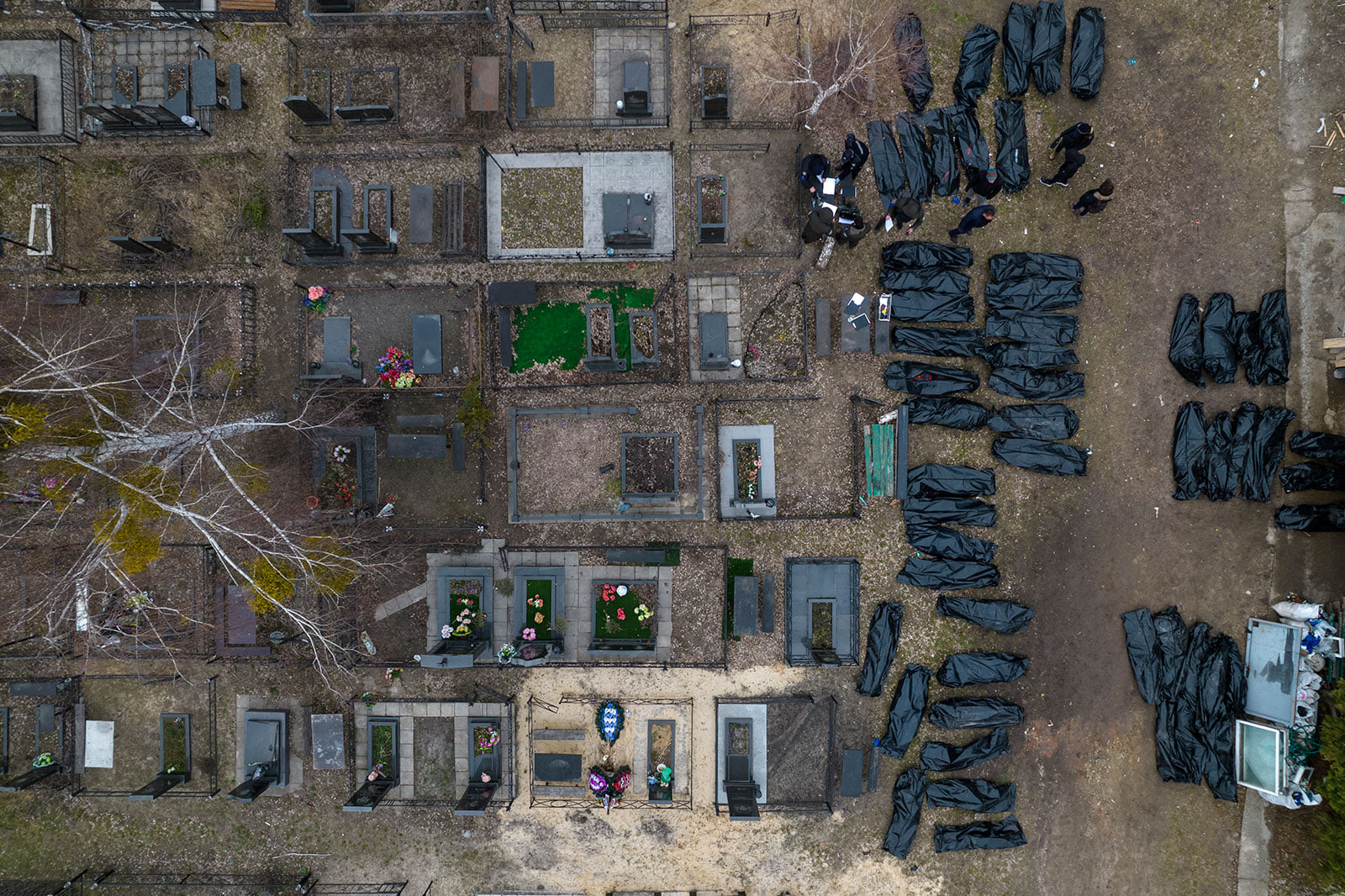
Photo: Rodrigo Abd for AP Photo
6.04 Prypiat, Polissia
The Ukrainian military hoisted the Ukrainian flag in the Chornobyl Exclusion Zone after it was liberated.
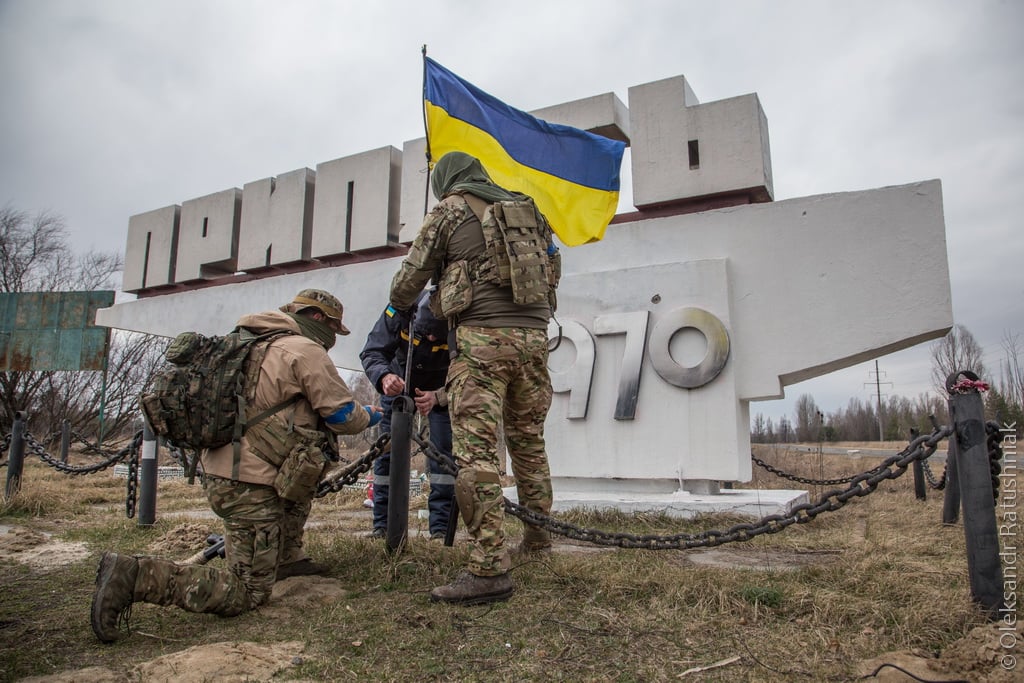
Photo: Ratushnyak Oleksandr

